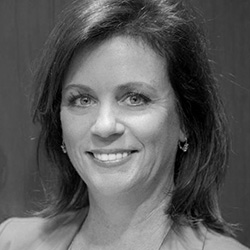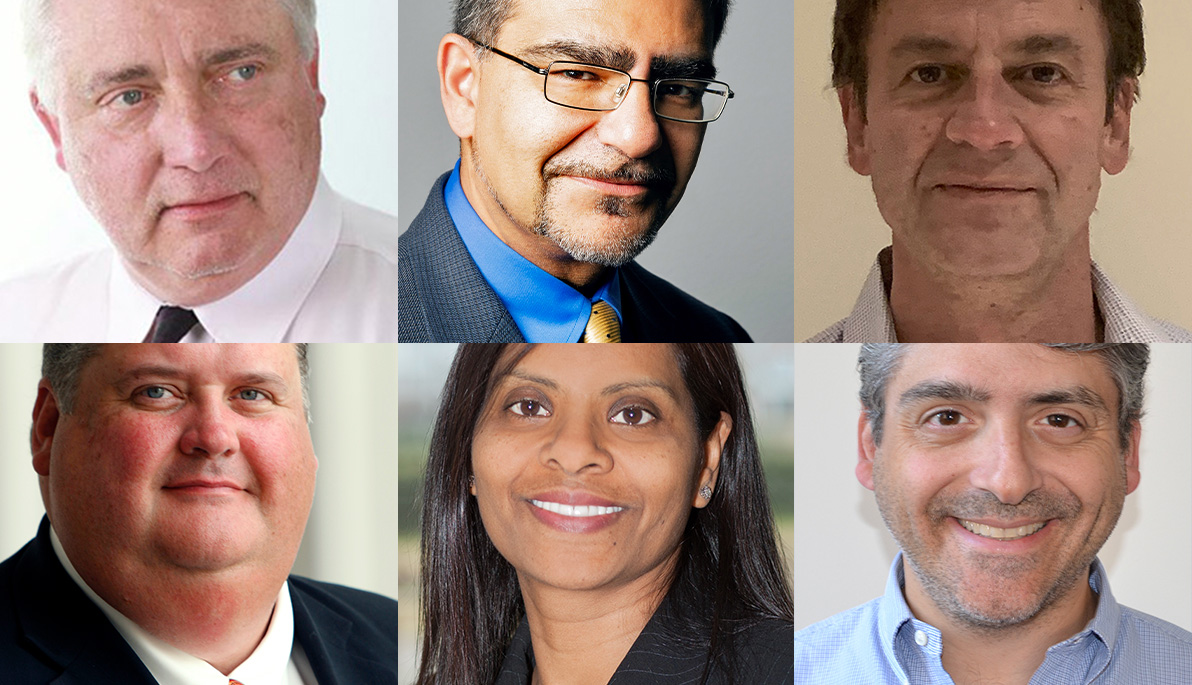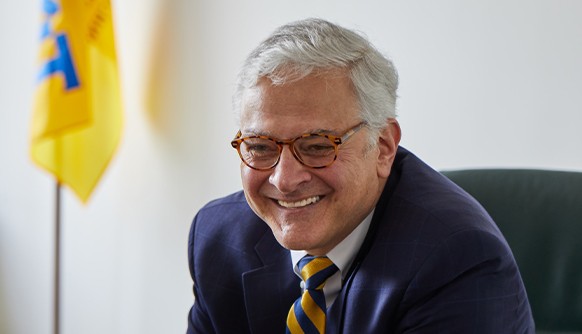News
Preparing Students for a New Workforce
June 28, 2021
Pictured clockwise from top left: Joe Dowd, moderator and publisher of Long Island Press; College of Engineering and Computing Sciences Dean Babak Beheshti; Larry Karantzios, security specialist at Zscaler; Rob Marano, global practice leader for IoT Edge at AWS Professional Services; Shamlaa Naidoo, head of cloud strategy and innovation at Netskope; and Scott Millar, senior vice president for human resources at Canon USA.
As the world enters the post-pandemic job market, companies and higher education institutions will look to build the workforce of the future. But they are now facing an increased need for new skill sets in technology, problem-solving, communication and leadership, the ability to work in teams, and professional industry certifications.
In a recent Long Island Business News webinar, “Industry-Academic Partnerships for Technology and Economic Growth,” facilitated by New York Tech and moderated by Joe Dowd, publisher of Long Island Business News, a panel of higher education and industry experts discussed the challenges to prepare students for careers and ensure businesses find the talent they need to remain competitive. “We need to have a deep dialogue between industry and higher education to make sure there is a nice dovetailing of what we produce to what the industry expects,” said Babak D. Beheshti, Ph.D., dean of the College of Engineering and Computing Sciences.
Academic and industry partnerships foster economic growth by supplying a steady pipeline of skilled workers, offering students opportunities to gain valuable real-world experience through internships, job shadowing, co-ops, apprenticeships, and research collaborations.
Panelists noted that change is constant, and students need to be proactive, lifelong learners, adaptive, passionate, and well-rounded. Technical skills can be taught and become obsolete quickly. But soft skills, such as communication, leadership, and creativity, will be rewarded in the evolving economy. Scott Millar, senior vice president for human resources at Canon USA, explained that organizations are looking for skills, such as flexibility, time management, and critical thinking—skills that are difficult for employers to teach. “We need talent coming into the organization with those types of skills fully developed,” he said.
In addition to soft skills, professional certifications in cybersecurity and programming languages give prospective employees an edge. According to the panelists, companies look to hire employees with updated skills, expose them to different jobs, and train them to work optimally within their own corporate culture. Larry Karantzios, security specialist at Zscaler, stressed the importance of keeping employees motivated, including the ongoing relationship between employees and managers to identify what skills are needed, make the best match, and allow employees to try out different roles within the organization.
The panel also discussed some of the challenges of creating a diverse workforce, including the “leaky pipeline”—students who begin but do not finish their education, as well as the underrepresentation of underserved communities in higher education. Beheshti noted that nationally only one in five (20 percent) students enrolled in undergraduate STEM programs are women, and many leave the field within 20 years after graduation. It is important to start early and invest in talent through mentorships, create awareness through formal programs such as Girls Who Code, and make higher education more accessible financially and culturally to attract and retail this untapped resource of women and diverse populations.
Shamla Naidoo, head of cloud strategy and innovation at Netskope, pointed out that students need to learn “how to make decisions, how to behave, navigate the workplace, and be a successful business person. That information is not naturally and easily accessible to people from underserved communities.” Students also need to see more people like themselves as successful in their careers through alumni and mentorship programs. Rob Marano, global practice leader with Amazon Web Services Professional Services, added that a diverse workforce leads to greater creativity. “Innovation doesn’t happen in a planned environment; it is through diversity and surrounding yourself with those that challenge your ideas,” he said.
New York Tech is answering the call. The university has partnered with Zscaler, a leader in cloud security, to allow students and alumni to gain real-world skills in cybersecurity. Python Programming for Women and single parents offers training in the programming language along with dedicated career services and support tailored to women, single parents, and caregivers impacted by the market downturn who may be unemployed or underemployed due to the COVID-19 pandemic. And the Women’s Technology Council’s new mentoring program supports and guides the university’s female students from college to career.
Panelists:
- Babak D. Beheshti, Ph.D., dean of the College of Engineering and Computing Sciences
- Larry Karantzios, security specialist, Zscaler
- Rob Marano, global practice eader for IoT Edge, Amazon Web Services Professional Services
- Scott Millar, senior vice president for human resources, Canon USA
- Shamla Naidoo, head of cloud strategy and innovation, Netskope

By Carol Lane




